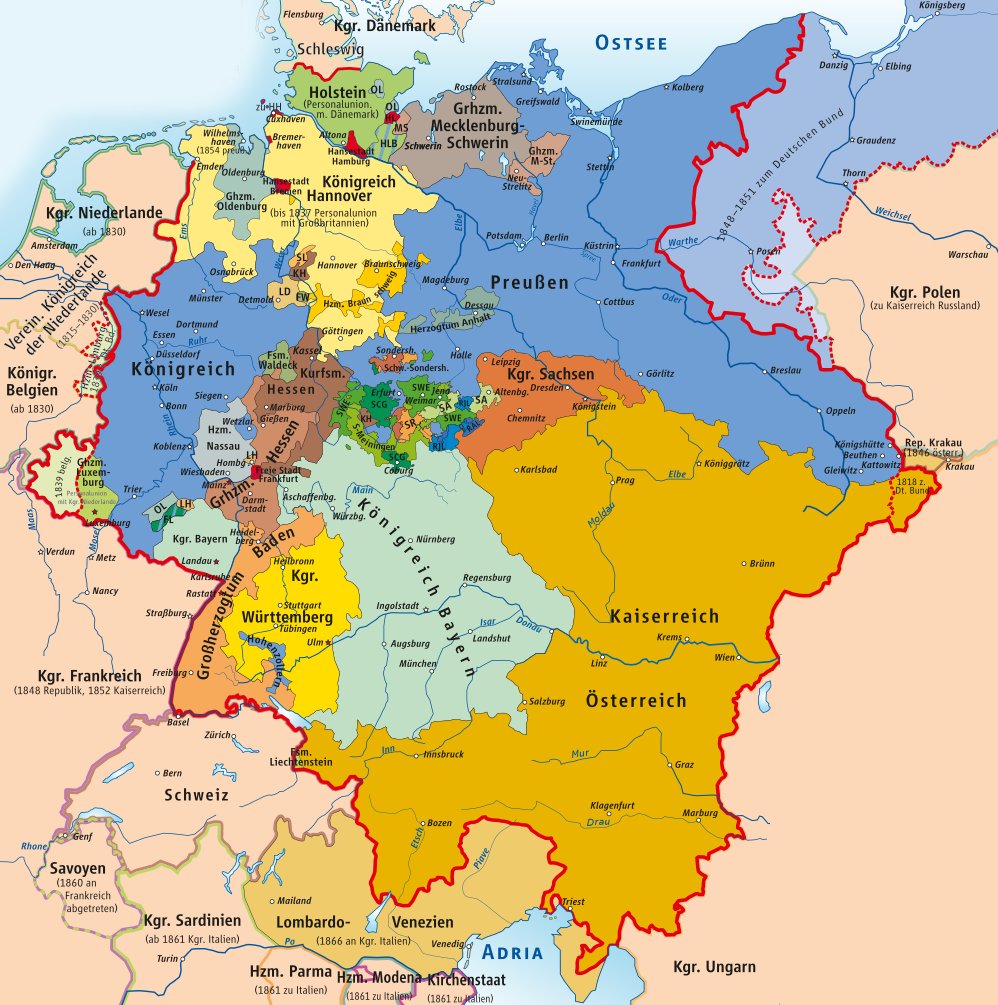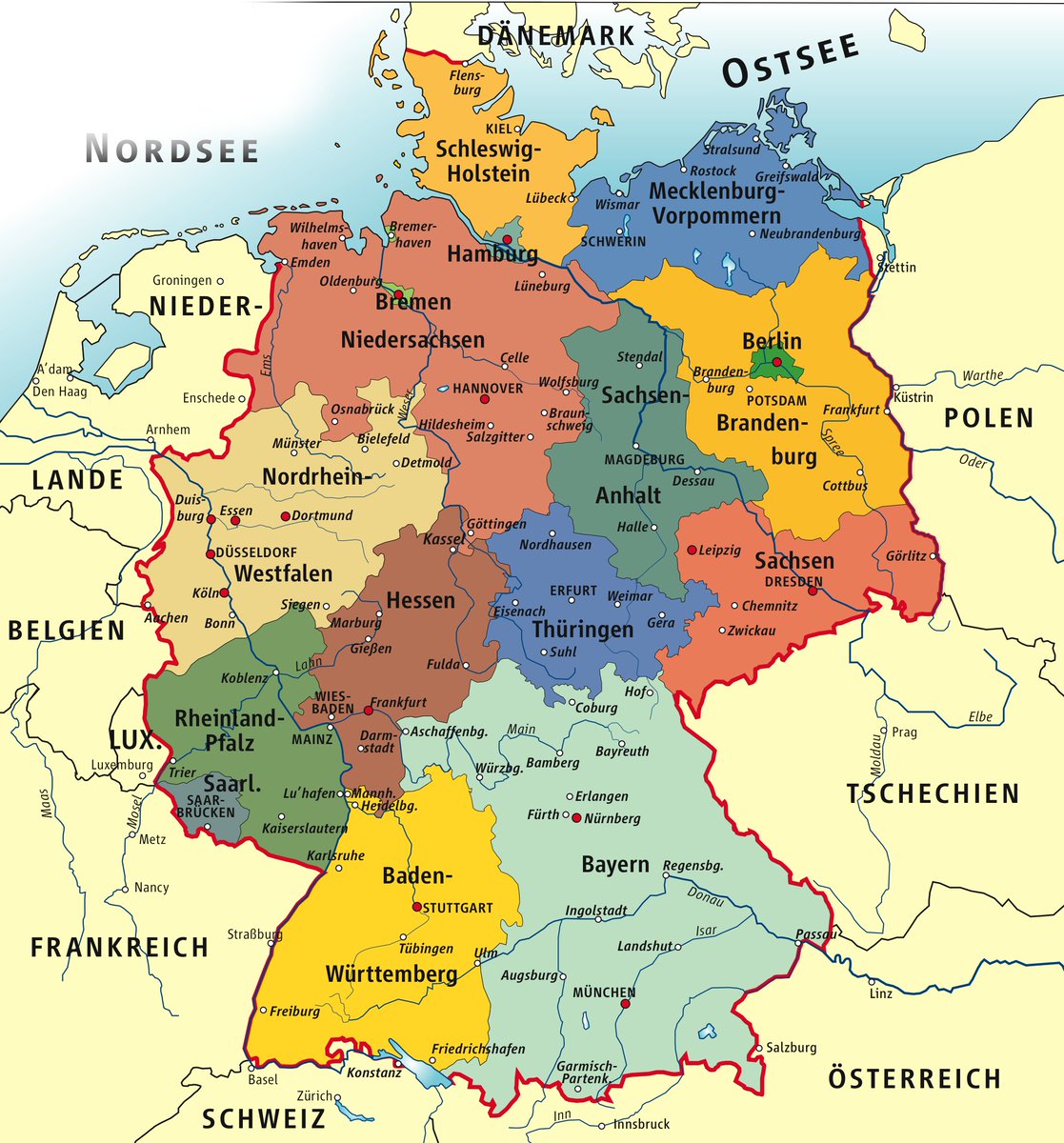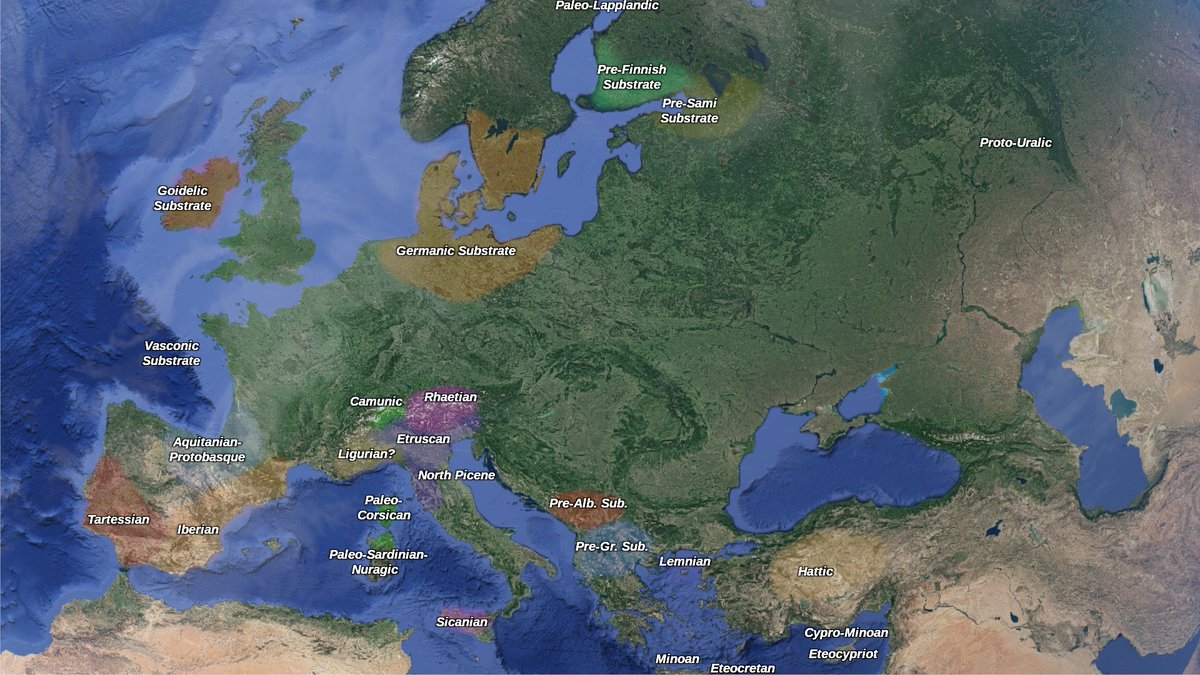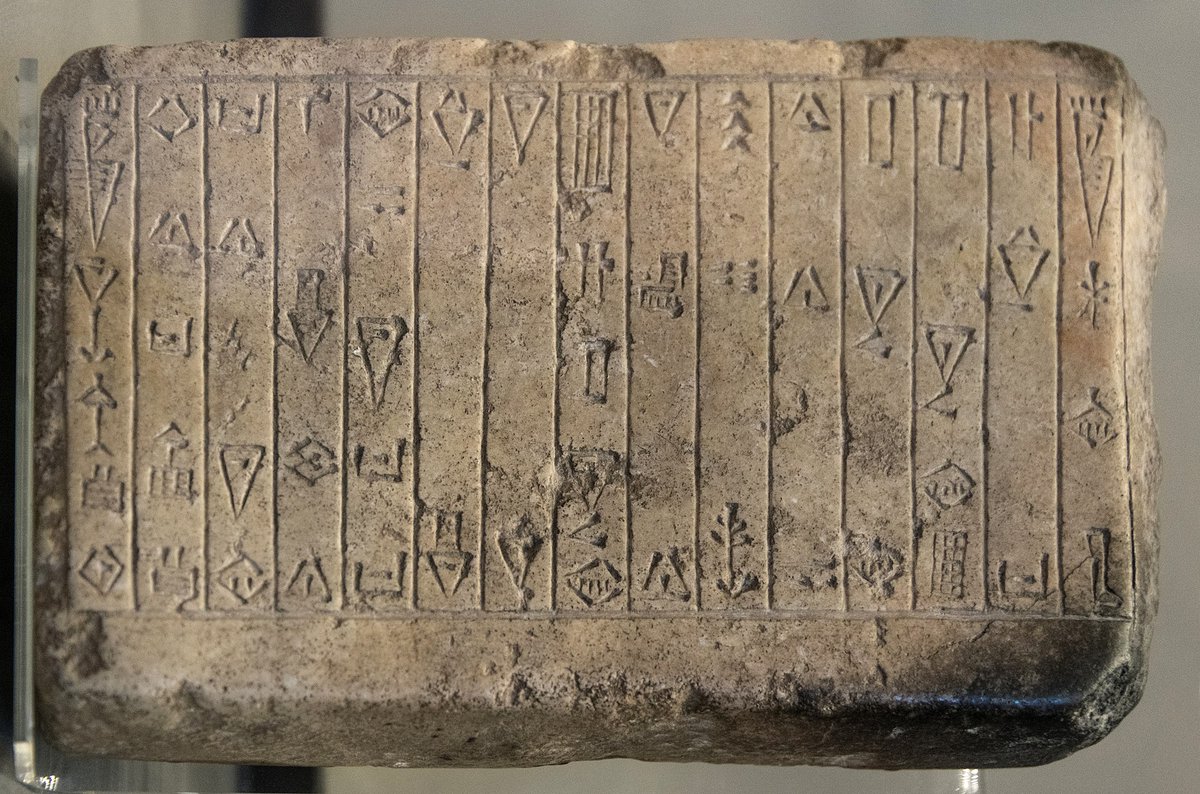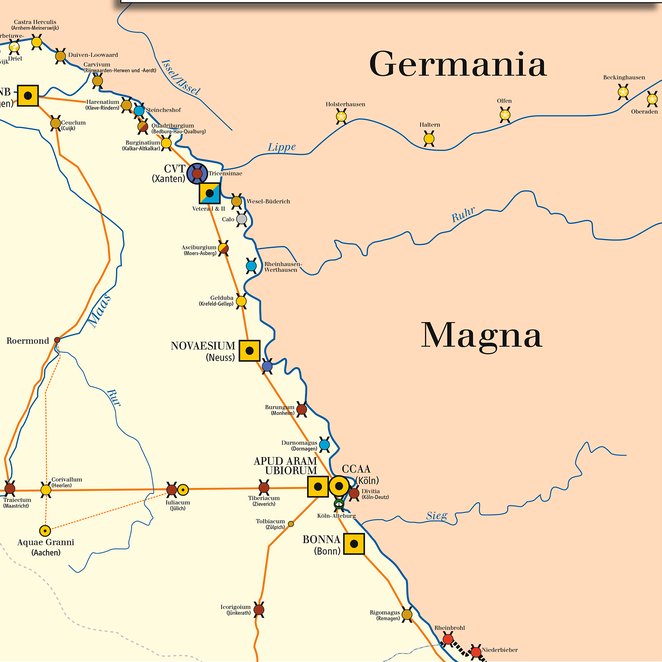(1/23) This thread is mainly addressed to my #German followers, but it could also be interesting for those who always wanted to know how Germany could become the most culturally leftist country on the European continent. Accordingly, this thread is a #political #commentary by me. 

(2/23) It is about the historical personality of the first post-war chancellor, Konrad Adeneauer. I also would like to finally dispel a myth that still plagues German conservatives, by which I do not mean recationaries, but all those who do not want to destroy their own country.
(3/23) This myth is the myth of the "good old", #50s and #60s, #CDU (Christian Democratic Party) and the question of what role a post-war #Germany could have played if #Adenauer and his party had not made completely wrong decisions about essential political directions.
(4/23) Let's start from the beginning: #Adenauer has a great reputation today among many pro-German citizens of the Federal Republic of Germany (FRG). He is considered a true #patriot and father of the country, often also the best #chancellor of the FRG. But that's already wrong.
(5/23) He never had any interest in Germany as a whole. In particular, he could not stand the Lutheran Prussian elites of the German Empires and with them he did not care about large parts of the country. Adenauer's utopia was always a petty-bourgeois, Rhineland-Catholic society. 

(6/23) But he did not develop this attitude only after #WW2. He already took a clearly anti-German position after #WW1.
#Adenauer was mayor of the city of #Cologne at the time. Cologne, like the #Rhineland, was largely #Catholic, #Germany overwhelmingly #Lutheran Protestant.
#Adenauer was mayor of the city of #Cologne at the time. Cologne, like the #Rhineland, was largely #Catholic, #Germany overwhelmingly #Lutheran Protestant.
(7/23) #Adenauer knew that the spelling of the city name of "Cöln" (eng. Cologne) was important to #Emperor Wilhelm the Second, as it probably reminded him of the #Roman #Empire and the antiquity. For no other reason besides this fact, he changed it to "#Köln" to offend Wilhelm.
(8/23) What was formally a minor matter had a large #symbolic character. Afterwards, #Adenauer even welcomed the #British and #French occupiers. He emphasized that the Rhinelanders were of mixed ancestry and therefore not disparaging towards other peoples, unlike #Germans. 





(9/23) Today, by the way, the #Rhineland is the part of the Ferderal Republic of Germany with the smallest percentage of #Germans. A bit ironic, isn't it?
But wait, after WW1 #Adenauer had big plans for his Rhineland!
But wait, after WW1 #Adenauer had big plans for his Rhineland!
(10/23) #Adenauer planed to detach the #Rhineland from Germany after #WW1 and administer it as an own state. He envisaged a closer alliance with #Belgium, a prison of nations and a #state that began to erase everything #German within its borders after the World #War. 

(10/23) #Adenauer had already shown at that time, that he had no interest in #Germany. But only after the country was devastated in the Second World War, his moment had come.
He was fundamentally anti-communist and #Catholic-#conservative, but at the same time anti-German.

He was fundamentally anti-communist and #Catholic-#conservative, but at the same time anti-German.


(11/23) #Adenauer was in short:
the perfect administrator of the Western #Allies!
Other men with a #Wehrmacht biography, such as Adenauer had, would have been #neutalized under the premise of "#denazification" and would have received #political bans. Adenauer not.
the perfect administrator of the Western #Allies!
Other men with a #Wehrmacht biography, such as Adenauer had, would have been #neutalized under the premise of "#denazification" and would have received #political bans. Adenauer not.

(12/23) His #centrist party, the #CDU, was deliberately allowed to tap into the conservative spectrum of the #FRG, which was newly founded in 1948. The #occupation authorities kept a close eye on who took up a post in the party. 

(12/23) #Adenauer's and the #CDUs agenda was to bind the #FRG to the Western Bloc at any price, and that meant economic, military and cultural submission to #France, Great #Britain and, above all, the #USA.
... in the short term, this may even have been good for the economy:
... in the short term, this may even have been good for the economy:

(13/23) compared to the #GDR, which had to pay reparations to the #USSR, the #FRG profited from the Marshall Plan.
In the long run, however, he has thus denied Germany any #geopolitics of its own and culturally thrown wide open the doors to US universities and their decay.
In the long run, however, he has thus denied Germany any #geopolitics of its own and culturally thrown wide open the doors to US universities and their decay.
(14/23) As a result, it was no wonder that some 20 years later, the #protests of 1968 in the #FRG had a greater impact than in any other #European country. #Adenauer's insane West Bloc bonding at any price, had made the country intellectually subservient. 

(15/16) But would there have been any other way? What would have happened if he had not subjected Germany to Western hegemony and also not to that of the Eastern bloc? Would it have been possible at all?
The answer, unfortunately, is yes.
The answer, unfortunately, is yes.
(16/23) If the #FRG had withdrawn from #NATO, the #ECSC (predecessor of the #EU) and the #UN, i.e. had kept out of the Western bloc, even the #USSR would have agreed to the reunification of Germany in the early #1950s. Germany could therefore have remained non-aligned.
(17/23) At the same time, this would have meant that many aspects of the development of #US politics would never have taken root in #Germany. The right-wing dominated #universities would have remained, and the #political landscape today would be very different from what it is. 

(18/23) I have no false romantic feelings for this country. I myself am aware that there is a lot going wrong behind the #facades. But in many respects, a political society could have been established in #Germany that is not dissimilar to the one that exists currently in #Japan. 

(19/23) By this I mean: strict immigration laws, little everyday crime, very conservative social orders and well-developed infrastructure ... the opposite of the country I live in now.
The fact that it could have been so different, remains one of the biggest black pills for me.
The fact that it could have been so different, remains one of the biggest black pills for me.
(20/23) So to conclude:
#Adenauer was not a #German #patriot, he was only really interested in his #Rhineland, he was not a father of the country and he was probably one of the worst first #conservative #chancellors of the #FRG imaginable.
#Adenauer was not a #German #patriot, he was only really interested in his #Rhineland, he was not a father of the country and he was probably one of the worst first #conservative #chancellors of the #FRG imaginable.

(21/23) What Adenauer wanted to make out of the FRG was an enlarged Rhineland, where Catholic petty bourgeois can denounce each other because they cut the hedge 2cm too low and then cuddle up for carnival as if nothing had ever happened.
What he has created in the long run?


What he has created in the long run?



(22/23) A country that has been culturally destroyed, politically subservient to foreign masters, where crime is going through the roof, the economy is dying and where Germans will soon be a minority.
History is hard and so must be the verdict on Adenauer ...


History is hard and so must be the verdict on Adenauer ...



• • •
Missing some Tweet in this thread? You can try to
force a refresh


